Satellite images show damage at Israeli air base after Iranian missile strike
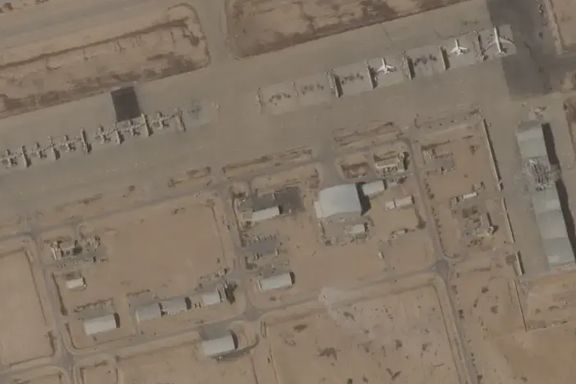
Satellite images released Thursday have revealed the extent of the damage caused by Iran's ballistic missile attack on Israel’s Nevatim air base, located near Be'er Sheva.

Satellite images released Thursday have revealed the extent of the damage caused by Iran's ballistic missile attack on Israel’s Nevatim air base, located near Be'er Sheva.

President Masoud Pezeshkian’s order to the Supreme Council of Cyberspace to crack down on the sale of anti-filtering software has left his supporters confused, as he had previously promised to lift internet filtering.
“I can’t understand the meaning of this order about anti-filtering software and how it can help the removal of filtering,” reformist political activist Hasan Asadi-Zeidabadi complained in a tweet Wednesday.
As president, Pezeshkian leads the Council, which includes several key cabinet members, such as the ministers of telecommunications, intelligence, culture and Islamic guidance, science and technology, education, and defense.
Before being elected, Pezeshkian strongly opposed the filtering of the internet which has forced tens of millions of Iranians to pay for anti-filtering software to get access to thousands of websites as well as all major social media platforms such as Instagram, WhatsApp, Telegram, and YouTube for personal use and business.
In the past two decades, the Islamic government has censored thousands of websites deemed religiously inappropriate or politically dangerous, while also blocking access to foreign social media. This has left citizens with no choice but using circumvention tools, such as VPNs.
Many allege that influential groups and companies that sell anti-filtering software have a strong foothold in the establishment and and have huge vested interests in the continuation of internet filtering. A majority of the population spends a few dollars a month on circumvention software.
The President’s supporters expected him to speak about filtering at the first meeting of the Supreme Council of Cyberspace which convened Tuesday for the first time since he took office and convince other members to lift it.
“Mr. Pezeshkian, we didn’t vote [for you] to investigate the sale of anti-filtering software, we voted because we wanted filtering to be removed,” a disillusioned supporter tweeted.
Instead, the media reported that he ordered action against the companies that make hundreds of millions of dollars from selling anti-filtering software and declined to set a definite term for the removal of filtering.
Many allege that influential groups and companies that sell anti-filtering software have a strong foothold in the establishment. These groups, they say, have huge, vested interests in the continuation of the filtering.
“Mr. President, trust us that one of the most important things for national unity and dignity for Iran is normalizing the conditions of the internet [access]. Remove the filtering and the mafia [that controls the sales] of anti-filtering software will be gone by itself,” journalist Ehsan Bodaghi tweeted.
Rouydad24 news website on Wednesday argued along the same lines saying that Pezeshkian’s order to take action against vendors of anti-filtering software could be an indication that there was “no will to lift the filtering of social networks in the short term”.
"The challenges of Pezeshkian's path don't stop people from holding him accountable," Rouydad24 wrote. "He promised to lift filtering and even vowed to stake his life on it."
Government spokeswoman Fatemeh Mohajerani stated on Wednesday that the administration is actively addressing the removal of filtering through various relevant bodies and councils, expressing hope that the promise made to the public will soon be fulfilled.
The Supreme Council of Cyberspace was formed in February 2012 by Supreme Leader Ali Khamenei’s decree which mandated it to establish a “national cyberspace center” and invested it with the power to decide internet control policies.
The majority of the Council's members are either directly appointed by Khamenei ("natural" members) or hold their positions due to roles in other parts of the government that he assigns to them.
These include the chief justice, parliament speaker, head of the state broadcaster, as well as commanders of the Revolutionary Guards (IRGC) and the Law Enforcement Forces (Police).
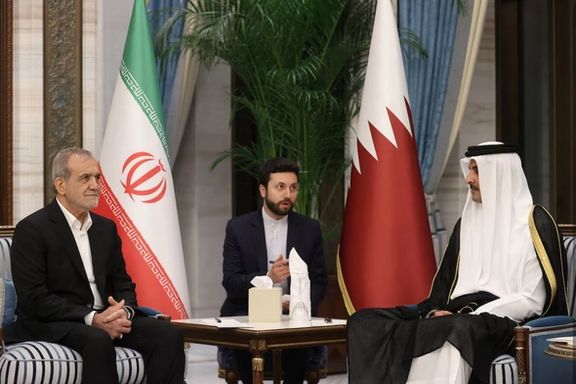
Iranian President Masoud Pezeshkian warned that Tehran would deliver a strong response to any further Israeli actions, however he mentioned that Tehran is not seeking war with Israel.
“We are not in pursuit of war with Israel. They promised us peace. But Israel has terrorised our guests in Tehran during our presidential inauguration. We want to establish peace. If you disagree, peace will not be established,” he said on Thursday during his trip to Qatar.
Pezeshkian’s trip came a day after Iran launched waves of ballistic missiles at Israel, prompting tensions between the two arch enemies. In response, Israel escalated its ongoing conflict with Tehran’s ally Hezbollah by sending more troops across the border into Lebanon. Israeli Prime Minister Benjamin Netanyahu stated that Israel would retaliate against Iran following the missile strikes.
"If the Zionist regime does not stop its crimes, it will face harsher reactions," Pezeshkian stated before leaving Tehran, according to Iranian state media. He reiterated his position during a joint press conference in Doha with Qatar's Emir Sheikh Tamim bin Hamad al-Thani, emphasizing that if Israel acts against Iran, Tehran will respond more severely.
Qatar, which does not have diplomatic relations with Israel, has been one of the mediators between Israel and Iran-backed Hamas. Israel has accused Qatar of being too soft with Hamas which has one of its political offices in Doha.
Pezeshkian also addressed the recent assassination of Hamas leader Ismail Haniyeh on July 31 in Tehran, which Iran blames on Israel, though Israel has not officially confirmed its involvement.
The Iranian president called on the United States and European countries to pressure Israel to avoid further “destabilizing” the region, without taking responsibility for Tehran's proxies being active across all Israel's borders. Since Hamas's invasion of Israel on October 7, Iran's militias in Yemen, Syria, Iraq and Lebanon have launched attacks on the Jewish state in allegiance with Hamas in Gaza.
The Qatari Emir, Sheikh Tamim, reiterated Doha’s commitment to mediating peace efforts, particularly in the ongoing conflict between Israel and Hamas in Gaza, which has been ongoing for nearly a year. Efforts to reach a ceasefire have so far stalled.
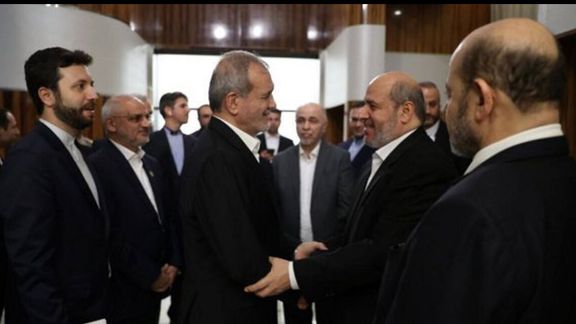
While in Qatar, Pezeshkian also met with a high-ranking delegation from Hamas and Saudi Foreign Minister Faisal bin Farhan. During his talks with the Saudi official, Pezeshkian expressed satisfaction with what he described as expanding relations between Iran and Saudi Arabia and highlighted Iran's interest in strengthening ties across the region, in spite of the limited progress between Iran and Saudi since last year's resumption of diplomatic relations.
The Iranian president will continue his visit by attending the Asia Cooperation Dialogue (ACD) Summit in Doha, where he is expected to seek broader regional support against Israel. He is scheduled to address the summit, which includes 35 Asian countries.

Following the recent escalation between Iran and Israel, a hardline Tehran newspaper is calling for a significant shift in the Islamic Republic’s nuclear doctrine, advocating for a major “transformation.”
On October 1, Iran launched a large-scale ballistic missile attack on Israel, citing the need to defend its national interests following Israeli strikes against its primary military proxy, Hezbollah, in Lebanon. In response, Israel has vowed a forceful retaliation.
As Iran braces for Israeli retaliation, the Javan newspaper, representing the Islamic Republic’s ultra-hardliners, argued on Thursday that it is time for Iran to revise its nuclear doctrine, which has long claimed the country is solely focused on peaceful objectives.
In a note written by Ali Ghannadi, Javan emphasized that "while Iran's nuclear doctrine over the past fifty-plus years (including the Pahlavi era) has been focused on the peaceful use of nuclear energy, today Tehran has the capacity, context, and opportunity for an immediate transformation in this program."
The note argued that conventional attacks on Israel fail to provide adequate deterrence, "given the resolve of Israeli leaders to use devastating military technology to establish a new order. This approach risks escalating the conflict even further. While some may propose creative solutions to manage the situation, one immediate option is a shift in Iran's nuclear doctrine."
The article noted that if the escalating confrontation and mutual attacks lead to a point when Israel faces and existential threat, would its government issue a nuclear threat against Iran? “Is the possibility of Israel issuing a clear or secret nuclear ultimatum out of the question?"
The hardliner newspaper went on to argue that Iran needs a deterrence against Israel’s overwhelming technological advantage, hinting at what could be interpreted as mutual nuclear deterrence.
Supreme Leader Ali Khamenei is expected to deliver a sermon during Friday prayers in Tehran on October 4, with speculation that he may unveil a new nuclear doctrine following the severe damage to Hezbollah, Iran’s key proxy force. Currently, Iran is amassing a stockpile of uranium enriched to 60%, which could be refined to 90%—the level needed for a nuclear bomb—in just two weeks. A shift in Iran's nuclear doctrine could signal an open move to enrich uranium to 90%, threatening the development of a nuclear weapon if Israel targets its vital interests.
Nearly a dozen nuclear sites in Iran are potential targets in an Israeli attack aiming to destroy or cripple Tehran atomic program, specifically its enrichment centers in places like Natanz.
Former Israeli Prime Minister Naftali Bennett called Tuesday for the destruction of Iran’s nuclear program following the Iranian missile attack.
“Israel has now its greatest opportunity in 50 years, to change the face of the Middle East,” Bennett said on his X account.
“We must act ‘now’ to destroy Iran’s nuclear program, its central energy facilities, and to fatally cripple this terrorist regime.”
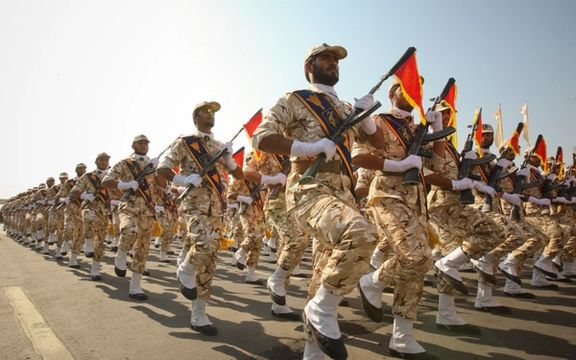
Before Iran launched a massive missile attack against Israel, the Quds Force—the arm of the Iranian military responsible for conducting proxy warfare—reasserted its primary mission: the elimination of Israel.
Yadollah Javani, a high-ranking military figure and political deputy of the IRGC, explicitly announced this mission for the first time during a political meeting with IRGC personnel in Iran's northwestern Qazvin province, as reported by Javan Online, a publication closely aligned with the IRGC.
Tehran launched over 100 ballistic missiles against Israel on Tuesday night, stating the attack was in retaliation for the killing of Hezbollah leader Hassan Nasrallah and senior IRGC commander Abbas Nilforoushan, both of whom were killed in recent Israeli strikes.
Javani’s comments, made just before Iran’s missile strikes, reflect a shift. Traditionally, the Quds Force has relied on indirect tactics against Israel, utilizing asymmetrical warfare and proxy forces. Now, Iran appears to be moving toward more direct confrontation, signaling a bold escalation in its approach.
The IRGC official emphasized the importance of this policy, asserting that the elimination of Israel is a longstanding commitment of Iran's Islamic government – with the Quds Force having been created by the Supreme Leader in pursuit of that goal.
"The policy of the Islamic Republic is the eradication of the existence of the Zionist regime. The Leader of the Revolution and the Islamic Revolutionary Guard Corps (IRGC) consider this a commitment. The Leader, in continuation of Imam Khomeini (may his soul rest in peace), has followed this policy, creating a force called the Quds Force, whose mission is clear,” Javani said.
“The Islamic Revolution and the new Islamic civilization have the elimination of Israel on their agenda," Javani added.
Iran’s Supreme Leader Ali Khamenei, who had previously vowed that Israel's killing of Hezbollah leader Hassan Nasrallah "will not go unavenged," was reportedly moved to a secret location in late September, according to Reuters. Tehran had previously refrained from retaliating for the widely perceived humiliating assassination of Hamas political leader Ismail Haniyeh in a Tehran guesthouse in July.
According to officials who spoke with The New York Times, conservatives in the Islamic Republic’s establishment were pushing for direct retaliation, while the so-called moderates reportedly preferred to avoid an all-out war.
On Sunday, Iranian Foreign Minister Abbas Araghchi had condemned the killing of IRGC deputy commander Abbas Nilforoushan in Beirut by Israel, calling it a "horrible crime" that would not go unanswered.
This week, the reformist news site Etemad Online featured an interview with an Iranian foreign policy analyst, Reza Nasri, who argued primarily against direct military confrontation with Israel, stating that such actions have historically strengthened Israel through US and international support. Instead, Nasri advocated for a "death by a thousand cuts" strategy: a prolonged effort to weaken Israel through economic, political, and demographic pressures. Nasri had further suggested focusing on creating internal instability in Israel, halting immigration, and damaging Israel's global reputation.
After the killing of Nasrallah, Nasri posted a tweet on his X page comparing the Hezbollah leader—widely known for his involvement in violent militant activities—to Nelson Mandela, a global icon of non-violence and reconciliation.
Iranian officials, including political and military figure Hossein Kanani Moghadam, who is affiliated with the IRGC, had emphasized that any decision to escalate or engage in open conflict is ultimately made by the Supreme Leader.
Speaking to centrist media Fararu, Moghadam had pointed out that Hezbollah has entered an "open-ended war" scenario, where there are no red lines for future operations against Israel, indicating that all forms of retaliation were on the table.
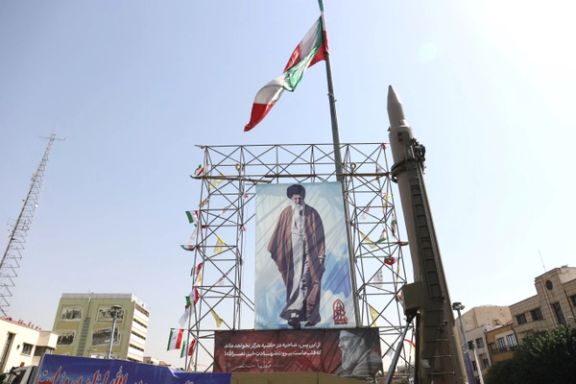
In the wake of Iran's massive but largely ineffectual missile barrage, Israel has arrived at a critical crossroads that will test its ambition in dealing with its mortal enemy.
All options carry grave consequences for the balance of power in the region and Israel's standing in an increasingly intense conflict flaring on multiple fronts.
Israel could heed US and international pleas for calm by downplaying the attack - just as it did when Iran launched its last missile volley in April - and hold off on a major response.
It might decide to target Iran’s political and military leadership, killing key figures as it has with Iran-backed Hezbollah in Lebanon.
In an even more extreme scenario, the Jewish state could take aim at Iran’s nuclear facilities, vital military sites, and economic infrastructure such as oil fields and refineries.
Still more devastating would be a combination of the last two options: an all-out strategy in which assassinations are paired with widespread destruction of military and economic infrastructure.
No perfect option
The first option is highly unlikely.
With the stakes so high, ignoring the attack may be seen from Israel as emboldening Iran and sending a message of weakness to its regional allies just as Israel appears to be gaining a military advantage, particularly in Lebanon.
The assassination route, while projecting unabashed strength, would not have a game-changing impact on the ground: Iran would quickly fill any personnel gaps with even more hardline cadres with redoubled hatred towards Israel.
The most extreme options also carry the most risks. Targeting Iran’s nuclear sites and infrastructure would almost certainly escalate into a full-scale war and drag the United States into the conflict - something both presidential hopefuls are on record as seeking to avoid.
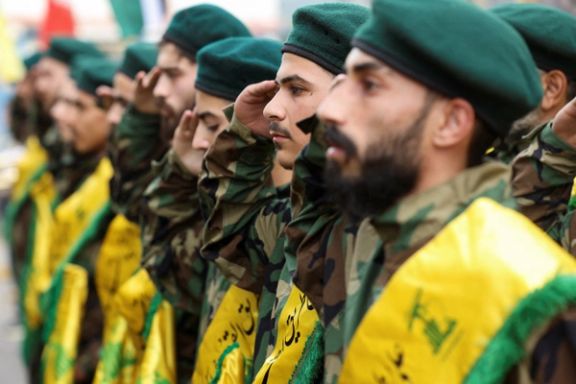
The Hezbollah Factor
Iran has always been hopeful that if it faced a confrontation with Israel or the US, Hezbollah’s presence in Israel’s neighborhood would make them think twice.
But Iran’s deterrent force in Lebanon has now been significantly weakened by Israeli bombings and airstrikes. Israel systematically targeted and decimated Hezbollah’s leadership within two weeks, and its missile arsenal could be degraded next.
A hobbled Hezbollah would mean the end of Iran’s most effective deterrent force in the region. But might that lead Iran to pivot toward building a new deterrent? And what might this deterrent be other than a nuclear weapon?
This would be an enormous strategic setback for Israel and accelerate the very nightmare scenario it seeks to prevent.
One shot
For Israel, this moment presents a rare opportunity to deal a severe blow to Iran’s nuclear ambitions, one that it would be reluctant to pass up.
But the bigger question remains: Will President Joe Biden support Israel’s more aggressive actions, even if it means risking a new war in the Middle East?
The answer is far from simple. If the Biden administration doesn’t back Israel, the Democratic Party could appear feckless and weak, which may not help at polls. But if it chooses to support a military strike that cripples Iran, it could alienate the left wing of his party, potentially losing some progressive votes.
Such a move might also appeal to moderate Republicans who oppose Donald Trump, creating an unexpected coalition of support. Standing with Israel could also help guarantee the backing of the influential pro-Israel lobby in Washington.

Can Israel Truly Stop Iran's Nuclear Program?
Some experts believe that Iran’s nuclear program is too deeply entrenched underground for Israeli airstrikes to eliminate it entirely. While it’s true that Israel may not be able to completely destroy the program, a well-executed attack might delay it by a few years.
Furthermore, if Israel opts for a combined assault - targeting both Iran’s nuclear facilities and its leadership - it could wound the Islamic Republic to the point where it may no longer be able to rebuild its nuclear program. In this scenario, the collapse of the whole ruling system could become a real possibility.
Israel's response to Iran’s missile attacks will not only determine the future of the Middle East but also have profound implications for the US's role in the world.
The Biden administration will weigh its options carefully. A misstep could ignite a regional conflict with global consequences, but doing nothing might risk emboldening Iran and rattling the security of the region even more.
Iran’s Fragile State
For the Islamic Republic of Iran, the current situation is precarious. Supreme Leader Ayatollah Khamenei is 85 - and in declining health.
The theocratic 'system' narrowly survived a major uprising just two years ago, and the country's economic conditions have worsened significantly.
Millions of Iranians are grappling with severe economic hardship, while tens of thousands of government workers have protested in the streets over delayed salaries and unpaid wages.
Unemployment remains high, and less than three months ago, Iran held a presidential election that saw a record-low voter turnout, ushering in a president with an unprecedentedly weak mandate.
In this fragile state, and after suffering significant blows from Israel - including the assassination of Ismail Haniyeh in Tehran on the day of the new president’s inauguration - Iran finds itself much weakened.
The question now is: can the Ayatollahs contain the growing discontent within the country if it is drawn into a war?
The missile strike, which occurred Tuesday night, marks an escalation in the ongoing hostilities between Israel and Iran, which supports Hezbollah and Hamas militants.
The images, shared by the Associated Press, show a large hole in the roof of a hangar near the main runway of the base, with debris scattered around. Nevatim is home to several critical Israeli Air Force squadrons. However, Israeli Defense Forces (IDF) officials have not confirmed what caused the destruction seen in the photos.
The IDF confirmed structural damage at multiple bases but stressed that no casualties were reported, and no aircraft were harmed.
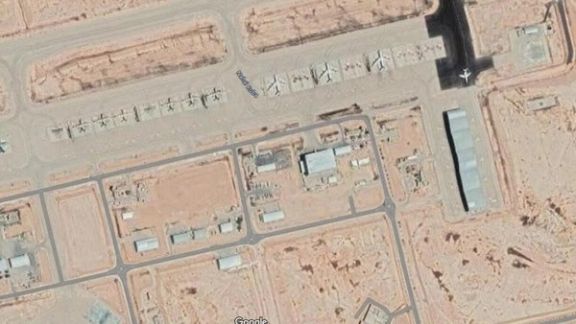
Sky News has also identified at least seven impact sites, including two Israeli airbases, a school, and two locations near the area believed to house Mossad's headquarters.
The news outlet has geolocated three videos indicating that the Nevatim airbase was targeted in the recent missile strike. Although none of the videos confirm a direct hit on the base or the extent of any damage, the footage collectively suggests that missiles landed within its perimeter, with at least shrapnel damage to the site.
In the videos, at least eight missiles are seen exploding in the direction of the base.
The strike, the second direct attack from Iran, follows an earlier missile bombardment by Iran which included targeting Nevatim in April, the base considered a critical target for Israel’s air defense.
Nevatim base, situated east of Be'er Sheva in southern Israel, houses three squadrons of F-35 fighter jets, along with transport units flying Super Hercules and Hercules aircraft. It also serves as the home of the Wing of Zion, Israel's official state aircraft.
Interceptions by Israel's air defense systems, designed to destroy or deflect incoming missiles, make it challenging to determine if the eventual landing sites of missiles or debris were the intended targets. Iran claimed that 90% of the missiles hit their targets, while Israel reported that many were intercepted.
Although the Iron Dome is the most recognized component of Israel's defense, Arrow 2 and 3 systems were the primary defenses against the long-range ballistic missiles launched by Iran. These systems operate outside the Earth's atmosphere, intercepting and neutralizing missiles before they can reach their targets.